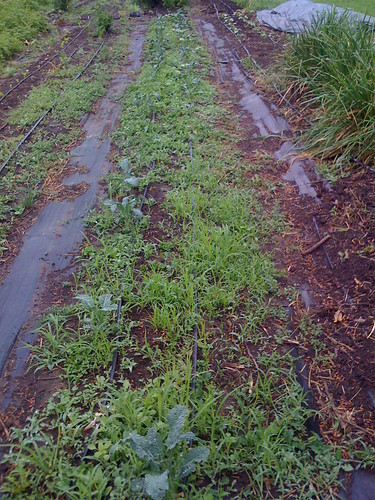Four years and crabgrass
A tweet and blog post by another teacher this busy morning brought me up short. As teachers, we make job changes less often than many, and this time of year brings many reflective moments among those who are making changes. So focused on learning, no teacher can make a change asking, “What have I learned from this place I am leaving?”
Four years ago this week, I made a major change. After 27 years as a teacher, I moved into year-round mode running TeachersFirst (previously my favorite moonlighting job) and out of the immediate cocoon culture of K12Land. It is only right that I stop after 4 years to reflect on what I have learned here in Nonprofitland.And, like the teacher above, I wonder a little about whether I have sold out.
Top five things I have learned after 4 years “on the outside” (sort of):
5. Moving on should not make you feel guilty. Once you get past the guilt for being able to go to the bathroom when you please and no longer helping 150 kids each and every day, you start to notice the reach you do have from your new place. Once you stop labeling your changed constituencies: “at risk population,” “sell out,” etc., you realize that every population needs you. The immediate impact on kids is far less obvious in Nonprofitland, yes, but after a couple of years, you start to see new root systems for growth developing because of the things you have planted. In today’s world, Twitter and rss feeds help us see that extending growth.
4. Teachers trust those who still hear them. Not every teacher has the opportunity or motivation to move out of the classroom to Nonprofitland (or Profitland– yuck!). Teachers will continue to trust those on the other side of the fence as long as we still listen and feel what classroom life is like. I don’t think I can ever forget being in the classroom. At least I hope not. (My husband says I will talk like an 8th grader for life.)
3. Kids are the best alternative energy in the world. Outside the classroom, you have to find other sources to generate the electric moments, and they are MUCH harder to find. I find myself talking to the kids at the neighborhood pool or reading and commenting on class blogs, etc. just to connect to that power source. When my energy runs low, it is one of the few places I can recharge.
2. Teachers conduct the energy their students generate. Since I no longer have contact with the kids every day, I rely on contact with their teachers. OK2Ask, in particular, acts as conductive material passing along the electricity. But I can talk to any teacher in person, in email, on Twitter, or through blogs and feel the buzz again. Like my iPhone, I need regular charging.
1. It is much lonelier outside of school. No amount of electronic contact will ever make up for the camaraderie of bitter, stale coffee and peanut M&Ms after school in the faculty room. Don’t say, “Misery loves company,” because that’s not it. Know that you — as a teacher — are living in a place no non-teacher will ever understand. The roots you cultivate daily are hopelessly tangled with many others. Even if you move to a different school/garden, those roots are as persistent as crabgrass, and they love entwining with others. Outside of school is a manicured, landscaped, well-mulched world that is not weed-friendly. When you first find yourself the only crabgrass in a bed of azaleas, you will need to find new ways to feel that you belong. There is nobility in crabgrass.



